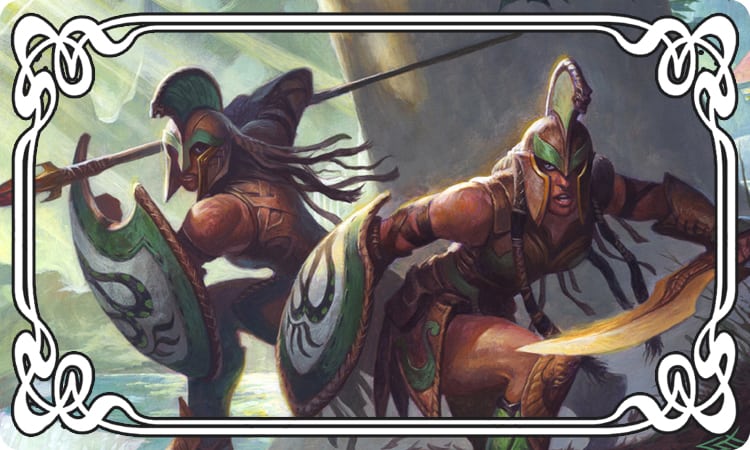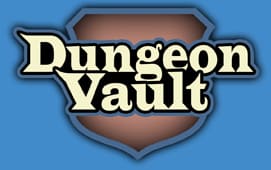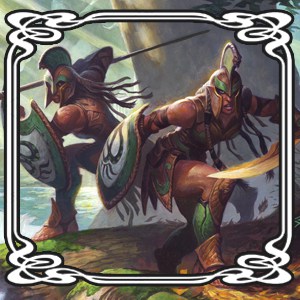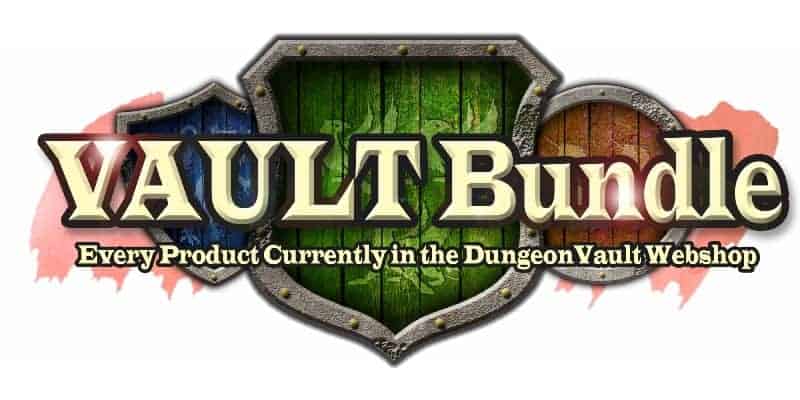
When you’re playing Dungeons & Dragons by yourself or with a small group it can be hard to keep things interesting. This is especially true if you have to come up with the challenges you wish to solve yourself as a solo player. But small groups can also find it difficult to have to come up with the entire solution of a complex puzzle. It is just easier if there’s more players to provide the answer.
In this article I’ll address the most common problems solo players and small groups face when using puzzles AND we will look at how to use puzzles in a way that can greatly benefit your game.
D&D Puzzles for Solo Play
With solo play there’s no dungeon master to provide a storyline or challenges. I like to create a situation and set a goal. For instance:
Situation: The island you were born on is slowly sinking.
Goal: Find the source of the problem and fix it.
Now that you have a goal this creates the storyline and all you have to do is make achieving your goal challenging; which means difficult but not impossible. Besides monster and such, puzzle challenges are ideal for this.
Here’s a list of random puzzle challenges you can choose from. Just roll the dice to see which problem your PC encounters.
| 1d6 | Type of Puzzle Challenge |
| 1. | Logic puzzle |
| 2. | Moral puzzle |
| 3. | Riddle puzzle |
| 4. | Travel puzzle |
| 5. | Combat puzzle |
| 6. | Item creation puzzle |
Logic puzzles
A logic puzzle is the simplest of puzzles. Logic puzzles are ideal for solo play because they provide all the puzzle pieces and rules in advance. So you can set up the entire puzzle without having to look up the answer. Almost all puzzles I design are logic-based and can therefore be used for solo play. Also, these puzzles involve many easier steps. So changes of getting completely stuck are minimal. This way, you won’t have to look things up midway through solving your puzzle.
Moral puzzles
Solo play is all about character development. You are at the heart of your story. Moral puzzles force your character to make a meaningful choice. Each choice has pros and cons. Choose the pros and you will also choose the cons. Solving moral puzzles helps determine who your character is in the world. I’ve written a more extensive guide on using moral puzzles here.
Riddle puzzles
Normally I would not recommend using riddles with solo play. In general, you want to stay away from anything that is vague where you need to look up answers halfway though solving the riddle. But I have designed a deck of 101 riddles where you can simple draw a riddle from the card deck and logically reason out the answer.. This makes these riddles much more useful for solo play.
Travel puzzles
The most common way to make travelling exciting in solo play is by introducing random encounters and monsters. But for variety, you can use a travel puzzle where solving the puzzle means you find your way through the wilderness. Here’s a more in-depth article I wrote on travel puzzles.
Combat puzzles
Combat in dungeons and dragons is based on stats. Reading stats can take away some of the mystery of fighting monsters. But you can also approach beating monsters as a puzzle you can solve or incorporate them in other ways. Again, I wrote a more in-depth guide on this and it is much more fun for solo play in my opinion.
Item creation puzzles
How do you reward yourself as a solo player. You could defeat monsters and roll on one of the loot tables. But what if creating your own magical items IS the story? One puzzle I’ve created is called potion puzzles, but it is really a complete system for creating magical items through a puzzle mechanic.
D&D puzzles for small groups
If you’re playing with a small groups you really want to watch out for puzzles where it is easy to get stuck. An example of such a puzzle is Gandalf’s famous ‘Speak friend and enter’ puzzle. With this type of puzzle you either get it or you don’t. And with smaller groups the changes of not getting it increase a lot.
Instead, I would focus on teamwork puzzles. With teamwork puzzles you divide the responsibility of solving the puzzle evenly. And these types of puzzles focus on letting every character shine through using their unique abilities. You can read more about how to use these puzzles here.
My best puzzles for solo play and small groups
Besides these general tips I’ve made a selection of D&D puzzles that I believe will work the best for solo play and small groups these are:
- Dungeon Puzzles
- Lock Puzzles
- Potion Puzzles
- Floor Puzzles
- Laser Puzzles
- Elemental Puzzles
- Door Puzzles
- Angels and Demons Puzzles
- Deck of 101 Riddles
Each of these puzzles and riddles require little setup and a clear starting point without having to see the answer first. I also recommend the Prepless GM because it gives you lots of tools that work well for generating story content on the fly and making adventures without a predetermined plot.
Everything I mentioned and more is included in the Vault Bundle which contains hundreds of puzzles and a ton of other great stuff for your games.


